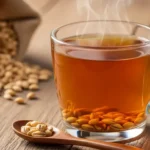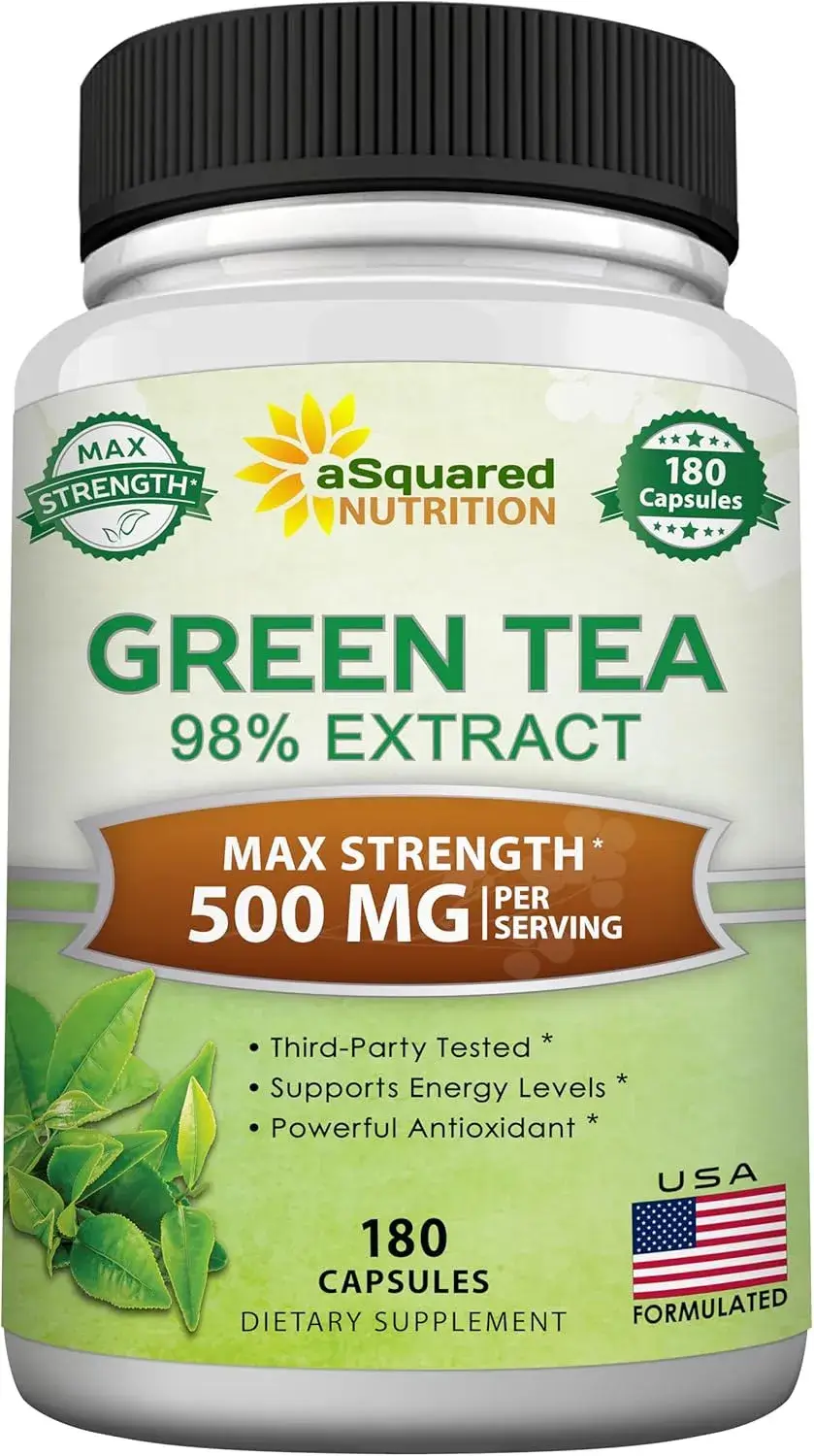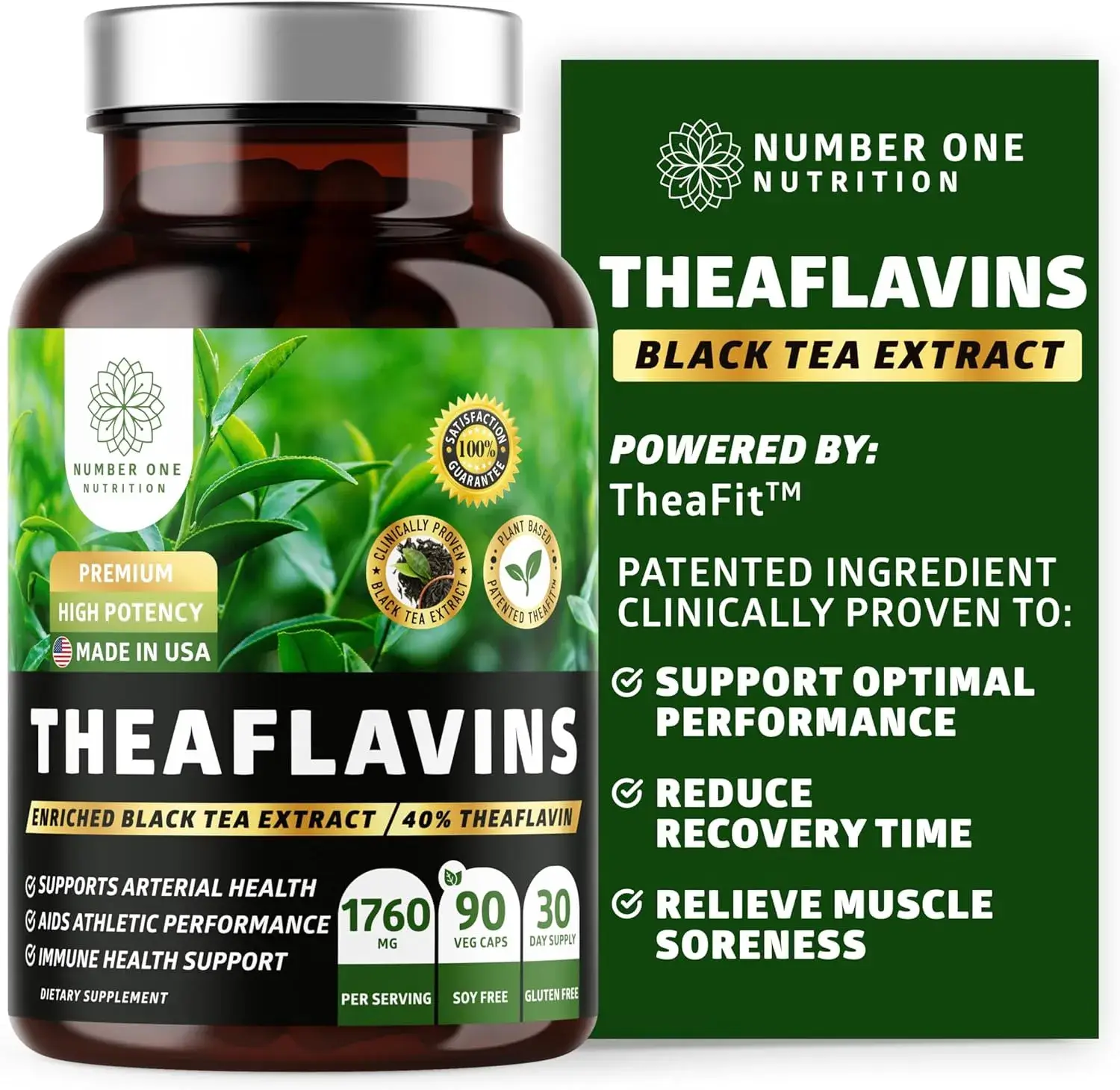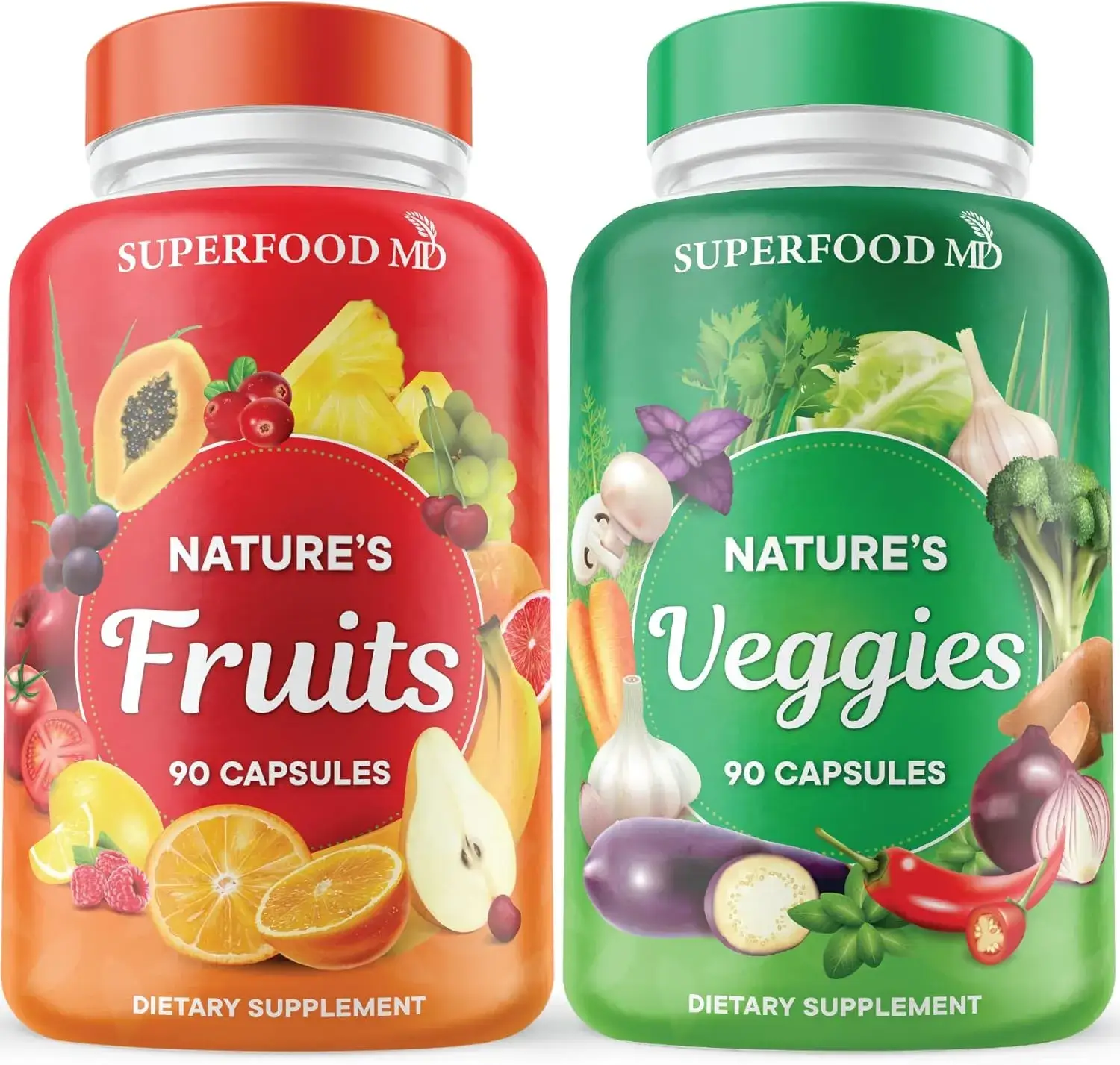Table of Contents
So, you’ve heard that peppermint tea good for acid reflux is a common belief, right? It’s a pretty common idea. Many people reach for a warm cup of peppermint tea when their stomach feels off, thinking it’s a natural way to settle things down. For ages, peppermint has been used for all sorts of tummy troubles like bloating and gas. But when it comes to acid reflux, or GERD, the story might be a little different than you think. Let’s break down why this popular herbal drink might actually make things worse for some people.
Key Takeaways
- Peppermint tea is often thought to help with digestion, but it can actually worsen acid reflux for some individuals.
- The menthol in peppermint can relax the lower esophageal sphincter, potentially allowing more stomach acid to back up into the esophagus.
- If you experience heartburn or acid regurgitation, it’s best to avoid peppermint tea.
- Alternative herbal teas like chamomile, licorice, or ginger may offer relief for acid reflux symptoms.
- Lifestyle changes such as diet adjustments, stress management, and avoiding lying down after eating are important for managing acid reflux.
Understanding Peppermint Tea and Acid Reflux
Many people reach for a warm cup of peppermint tea when they feel a bit off, hoping for some soothing stomach relief. It’s true that peppermint has a long history of use for digestive complaints, and it’s often associated with digestive benefits. For centuries, people have turned to peppermint for issues like bloating, gas, and general stomach upset. The menthol in peppermint is thought to help relax the muscles in the digestive tract, which can be quite helpful for these kinds of problems. This is why you might see peppermint tea for heartburn mentioned as a remedy.
The Misconception About Peppermint Tea for GERD
However, when it comes to more serious digestive issues like GERD (Gastroesophageal Reflux Disease), the story gets a bit complicated. There’s a common idea that peppermint tea can help with GERD, but for many, it actually makes things worse. GERD involves stomach acid backing up into the esophagus, causing that familiar burning sensation. While peppermint can be great for general digestive relief, it has a specific effect that can be problematic for GERD sufferers.
How Peppermint Affects the Esophageal Sphincter
Here’s the key point: peppermint tea works by relaxing muscles. This is generally a good thing for your gut. But, it also relaxes the lower esophageal sphincter (LES). The LES is a muscular valve between your esophagus and your stomach. Its job is to stay closed to keep stomach contents, including acid, from flowing back up. When peppermint relaxes this valve, it can actually allow more acid to splash back into the esophagus, leading to more heartburn and discomfort. So, while it offers soothing stomach upset for some, it can be a trigger for others.
Peppermint’s Traditional Digestive Uses
Historically, peppermint has been a go-to for a variety of digestive woes. Think of it as a traditional remedy for things like indigestion, gas, and cramps. Its antispasmodic properties mean it can help calm down an overactive gut. This is where the idea of peppermint tea benefits for digestion comes from. It’s been used for a long time to help things move along smoothly in the digestive system, providing a sense of ease and comfort. This is why many associate peppermint with digestive relief.
Why Peppermint Tea May Worsen Acid Reflux

While peppermint tea is often thought of as a digestive aid, it can actually make acid reflux worse for some people. This is mainly because of how peppermint affects a specific muscle in your digestive system.
Relaxing the Lower Esophageal Sphincter
Think of the lower esophageal sphincter (LES) as a gatekeeper between your esophagus and your stomach. Normally, it opens to let food down into your stomach and then closes tightly to keep stomach contents, including acid, from coming back up. Peppermint, however, has properties that can relax this muscle. When the LES relaxes too much or doesn’t close properly, stomach acid can more easily flow back up into the esophagus. This backflow is what causes that burning sensation we call heartburn.
Potential for Increased Acid Backflow
Because peppermint can relax the LES, it creates an easier path for stomach acid to travel upwards. This means that instead of helping to keep the acid down where it belongs, it might actually encourage it to move in the wrong direction. For individuals already prone to acid reflux or GERD, this effect can lead to more frequent or more intense symptoms after drinking peppermint tea.
Irritation of the Upper Esophagus
Beyond just relaxing the LES, peppermint itself can sometimes be a bit irritating to the delicate lining of the upper esophagus. This irritation can add to the discomfort already caused by stomach acid. So, while it might feel soothing initially, the menthol in peppermint could potentially aggravate the situation for those with sensitive esophageal tissues.
👉 Try the Premium Peppermint Tea for Instant Soothing Relief 👈
Identifying Symptoms of Acid Reflux
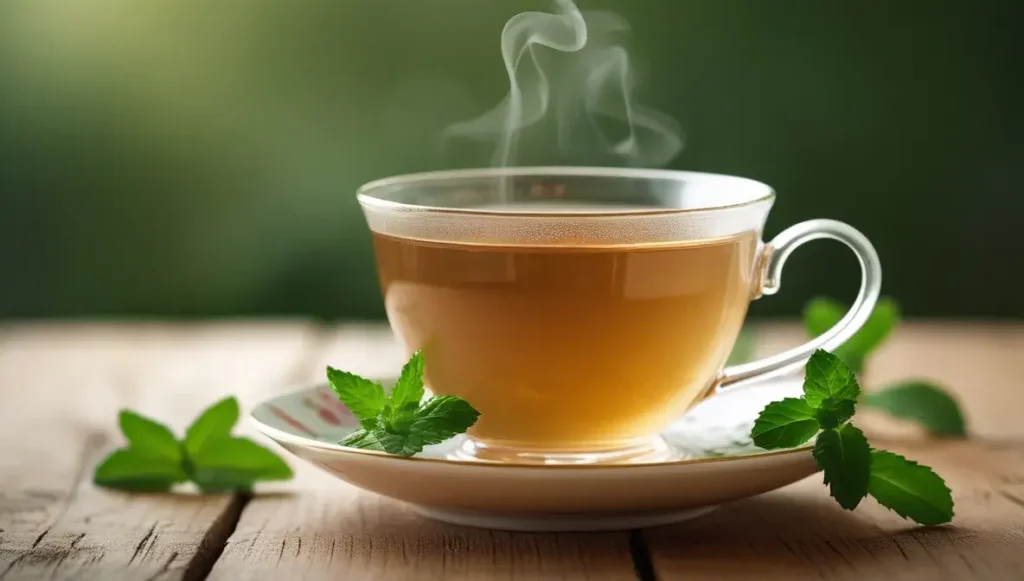
Recognizing the signs of acid reflux is the first step toward finding relief. While it’s often talked about casually, understanding the specific symptoms can help you manage it better.
Heartburn and Acid Regurgitation
The most classic symptom, and probably the one everyone knows, is heartburn. It feels like a burning sensation right in your chest, usually after eating. Sometimes, it can even creep up into your throat. You might also notice a sour or bitter taste in your mouth, which is caused by stomach acid coming back up. This is called acid regurgitation. It’s not just a mild discomfort; for some, it can be quite intense.
Other Common Symptoms to Watch For
Beyond the burning chest pain, acid reflux can show up in other ways too. You might experience a persistent cough, especially at night, or a sore throat that doesn’t seem to go away. Some people also notice difficulty swallowing, a feeling like there’s a lump in their throat, or even hoarseness. Bloating and nausea can also be part of the picture. It’s a whole mix of things that can make you feel generally unwell.
Distinguishing Acid Reflux from GERD
It’s important to know that acid reflux and GERD (Gastroesophageal Reflux Disease) aren’t quite the same thing. Think of acid reflux as the occasional symptom – maybe you ate something spicy and got heartburn. GERD, on the other hand, is when these reflux episodes happen frequently, like two or more times a week, and can actually start to damage your esophagus over time. So, while they’re related, GERD is the more chronic and potentially serious condition. If your symptoms are happening often, it’s definitely worth talking to a doctor.
Keeping a journal of your symptoms, what you eat, and when they occur can be super helpful in figuring out your personal triggers. It’s like being a detective for your own body!
Alternative Herbal Teas for Reflux Relief

While peppermint tea might be a go-to for some digestive complaints, it’s not always the best choice for acid reflux. Luckily, there are other herbal teas that can offer a gentler approach to soothing stomach upset and supporting your digestive system. These brews have been used for ages as natural remedies for heartburn and other issues.
Chamomile and Meadowsweet Combination
This pairing is a traditional favorite for digestive woes. Both chamomile and meadowsweet are known for their anti-inflammatory and anti-spasmodic properties. This means they can help calm down an irritated stomach and ease cramping. Think of it as a gentle hug for your insides, helping to relieve a wide range of digestive discomforts. It’s a great option if you’re looking for a soothing stomach tea that’s less likely to cause problems.
Licorice Tea for Esophageal Lining Support
Licorice root, specifically deglycyrrhizinated licorice (DGL), can be quite helpful. It’s thought to boost the mucus coating in your esophagus. This extra layer of protection might help buffer the effects of stomach acid that travels upward. Some research suggests that herbal formulas containing DGL have been effective in managing GERD symptoms, sometimes even better than standard antacids. It’s a good example of an herbal tea digestion aid that works by protecting the lining.
Ginger Tea for Nausea and Inflammation
Ginger is another powerhouse herb when it comes to digestive issues. It’s well-known for its anti-inflammatory qualities, which can be beneficial when your digestive tract is feeling inflamed. Plus, ginger is excellent for tackling nausea, a symptom that can sometimes accompany acid reflux. If you’re dealing with both an upset stomach and a feeling of queasiness, ginger tea can be a really effective natural remedy for heartburn and offer relief from general stomach upset.
When preparing these teas, a good rule of thumb is to use about 1 teaspoon of dried herbs per cup of hot water. For leaves or flowers, let them steep for 5-10 minutes, covered. If you’re using roots, give them a bit longer, about 10-20 minutes. Drinking 2-4 cups a day can be a good way to incorporate these into your routine for digestive support.
👉 Get the Best Peppermint Tea for Calming Daily Relief 👈
Lifestyle Adjustments for Managing Acid Reflux

Addressing Risk Factors Like Stress and Diet
When you’re dealing with acid reflux, it’s not just about what you eat or drink, but also how you live. Stress can really mess with your digestion, sometimes making reflux symptoms worse. Finding ways to chill out, like taking a walk, doing some deep breathing, or even just listening to music, can make a difference. And diet, well, that’s a big one. Cutting back on things that tend to trigger your reflux – for many people, that means spicy foods, fatty foods, or anything too acidic – is key. Keeping a food diary can be super helpful to pinpoint exactly what sets you off. It’s all about making small, consistent changes to manage GERD symptoms.
The Importance of Not Lying Down After Eating
This might seem simple, but it’s a game-changer for managing GERD symptoms. After you finish a meal, try to stay upright for at least two to three hours. Gravity is your friend here; it helps keep stomach acid where it belongs. Lying down too soon after eating can make it way easier for that acid to creep back up into your esophagus, leading to that familiar heartburn. So, resist the urge to nap right after dinner!
Seeking Professional Advice for Persistent Symptoms
While these natural remedies for acid reflux and lifestyle tweaks can help a lot, sometimes you need more. If your acid reflux is a regular problem, or if it’s really bothering you, it’s a good idea to chat with a doctor. They can help figure out if there’s something more going on, like GERD, and can suggest the best course of action. Sometimes, medication or other treatments might be necessary to get your symptoms under control. Don’t hesitate to ask for help if you’re struggling to find relief with natural acid reflux remedies alone.
Potential Side Effects and Interactions
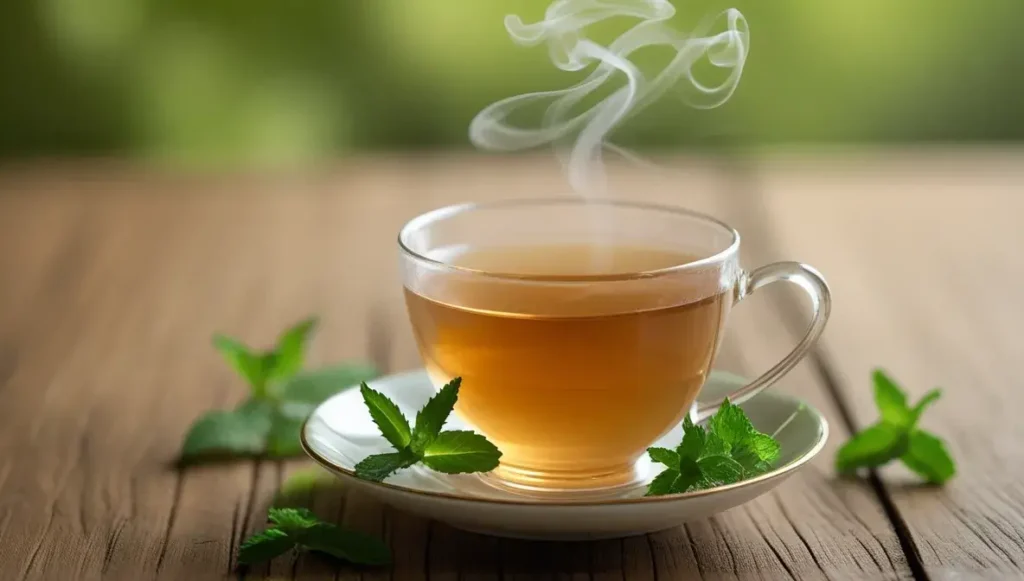
While peppermint tea is often thought of as a soothing drink, it’s not always the best choice for everyone, especially if you’re dealing with acid reflux. It’s important to be aware of how it might affect you and any medications you’re taking.
Medication Interactions to Consider
Peppermint can sometimes interfere with how certain medications work. For instance, it’s not recommended to take it with cyclosporine, a drug used by people who’ve had organ transplants. It might also change how your liver processes some drugs or affect medications designed to lower stomach acid. Some research even suggests peppermint could lower blood sugar and blood pressure. This means if you’re on medication for diabetes or high blood pressure, it’s a good idea to chat with your doctor before sipping on peppermint tea.
Concerns for Individuals with Kidney or Gallstones
Even though peppermint might be good for kidney function in general, it’s usually advised to steer clear if you have kidney stones or gallstones. The way it affects your body could potentially cause issues for these conditions.
Pregnancy and Peppermint Tea Consumption
When it comes to pregnancy, the research on peppermint tea isn’t extensive. While some studies haven’t found any negative effects, it hasn’t been studied thoroughly enough to say for sure. If you’re pregnant, it’s always best to consult with your healthcare provider before adding peppermint tea to your routine.
👉 Discover Top Rated Peppermint Tea With Premium Soothing Power 👈
Final Thoughts: Is Peppermint Tea Good for Acid Reflux or Not?
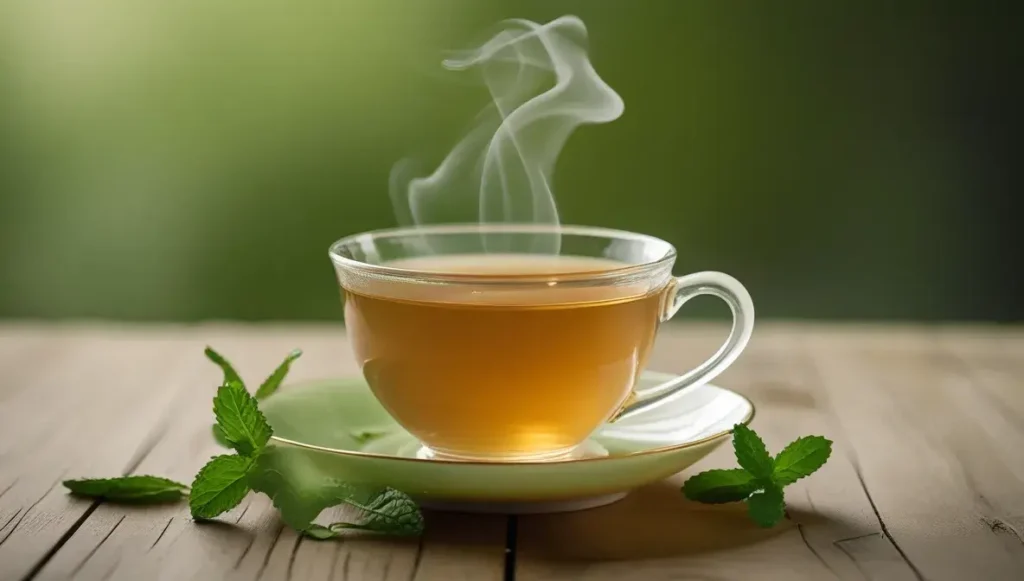
While peppermint tea is often thought of as a go-to for stomach troubles, it turns out it might not be the best choice if you’re dealing with acid reflux or GERD. The very thing that helps it relax your digestive muscles can also relax the valve between your esophagus and stomach, potentially letting more acid creep up.
So, if you’re experiencing heartburn or that uncomfortable backwash of acid, it might be wise to skip the peppermint and explore other options. Things like chamomile or ginger tea could be gentler alternatives. Remember, everyone’s body is different, so paying attention to what works for you is key. If you’re unsure, chatting with your doctor is always a good idea before making big changes to your routine.
Frequently Asked Questions
Can peppermint tea help with acid reflux?
While peppermint tea is often thought to help with digestion, it can actually make acid reflux worse for some people. This is because peppermint can relax the muscle that keeps stomach acid from coming back up into your throat. So, if you have heartburn or acid reflux, it’s usually better to avoid peppermint tea.
What is the difference between acid reflux and GERD?
Acid reflux happens when stomach acid travels up into your esophagus, causing a burning feeling in your chest. This is often due to a weak muscle at the bottom of your esophagus. GERD, or Gastroesophageal Reflux Disease, is when this happens often and can cause more serious problems.
What are the best drinks for acid reflux?
Some good choices for drinks when you have acid reflux include herbal teas like chamomile, licorice, or ginger. Low-fat milk, plant-based milks (like almond or oat milk), and water are also good options. It’s best to stay away from drinks that are acidic or fizzy.
Are there any side effects to drinking peppermint tea?
Yes, peppermint tea can have some side effects. It might trigger or worsen acid reflux in some individuals. It’s also not recommended for people with kidney stones or gallstones. If you’re taking certain medications, especially for liver issues, diabetes, or blood pressure, it’s wise to check with your doctor first.
What lifestyle changes can help manage acid reflux?
Making lifestyle changes can really help manage acid reflux. Try to avoid things that trigger it, like certain foods, stress, and smoking. It’s also important not to lie down right after eating and to eat smaller meals. If your symptoms are bad, it’s always a good idea to talk to a doctor.
What are some alternative teas for acid reflux relief?
If peppermint tea isn’t for you, you might find relief with other herbal teas. Chamomile, licorice tea (which can help protect your throat lining), and ginger tea (good for upset stomachs) are often suggested as gentler alternatives for digestive issues.
👉 Grab Exclusive Peppermint Tea Now for Soothing Stomach Comfort 👈







![Jasmine Tea vs Green Tea Benefits: Which Gives Better Health Results? [2025] jasmine tea vs green tea benefits](https://www.goteaworld.com/wp-content/uploads/2025/09/jasmine-tea-vs-green-tea-benefits-150x150.webp)

